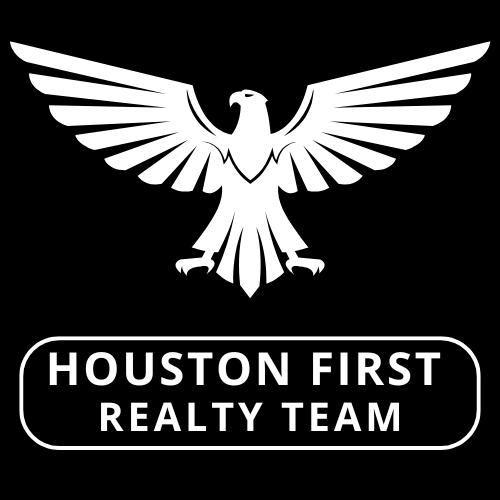The Future of Houston Real Estate: Trends Shaping 2025 and Beyond
Houston’s real estate market has always been dynamic, reflecting the city’s unique blend of industry, culture, and lifestyle. As we move into 2025, Houston continues to attract homebuyers, investors, and developers from across the nation. The market is evolving rapidly, influenced by population growth, economic trends, technological innovation, and lifestyle shifts.
Understanding these trends is essential for buyers, sellers, and investors looking to make informed decisions. In this comprehensive guide, we explore the key forces shaping Houston’s real estate market in 2025 and beyond, highlighting opportunities, challenges, and insights that will empower you to navigate the market strategically.
Houston’s Real Estate Market: An Overview
Houston’s real estate market is large, diverse, and resilient. From luxury estates in River Oaks to affordable homes in Spring Branch, the city offers something for every buyer and investor.
In 2025, key market indicators include:
-
Median Home Price: Approximately $339,000, reflecting slight stabilization after recent fluctuations.
-
Inventory Levels: A growing number of homes on the market gives buyers more choices, creating a balanced market.
-
Population Growth: Houston continues to attract new residents, driven by its affordable living, job opportunities, and vibrant lifestyle.
-
Rental Demand: Strong demand for single-family and multi-family rentals supports investors and first-time buyers alike.
These indicators point to a stable yet evolving market, making it critical to understand the trends that will shape opportunities in 2025 and beyond.
Key Trends Shaping Houston Real Estate in 2025
1. Suburban Expansion and Master-Planned Communities
Houston’s suburban areas are experiencing significant growth as buyers seek more space, better schools, and a family-friendly environment. Communities such as Cypress, Katy, Sugar Land, and Spring Branch are thriving with new development, including:
-
Master-planned communities with amenities like pools, parks, and walking trails
-
Single-family homes designed for modern lifestyles
-
Proximity to highways and business centers for convenient commuting
This trend indicates that suburban properties will continue to appreciate steadily, offering strong long-term value for both homeowners and investors.
2. Urban Revitalization and Walkable Communities
While suburbs expand, urban neighborhoods remain attractive due to walkability, culture, and convenience. Areas like The Heights, EaDo, Midtown, and Montrose are seeing revitalization with:
-
Renovated historic homes and townhomes
-
Mixed-use developments combining retail, residential, and office spaces
-
Cultural hubs with restaurants, galleries, and entertainment venues
Urban living appeals to young professionals, investors, and buyers seeking lifestyle convenience. This trend ensures continued demand and potential appreciation in city neighborhoods.
3. Technological Integration in Real Estate
Technology is transforming how Houstonians buy, sell, and manage properties. Key developments include:
-
Virtual Tours and Augmented Reality: Making it easier to view properties remotely and make informed decisions
-
Smart Home Features: Increasingly standard in new developments, adding value and appeal
-
Data-Driven Investment Tools: Helping investors identify neighborhoods with high growth potential
Tech integration makes real estate transactions faster, safer, and more efficient, benefiting buyers, sellers, and investors alike.
4. Emphasis on Sustainability and Green Living
Environmental awareness is reshaping Houston’s housing market. Buyers increasingly seek:
-
Energy-efficient homes with solar panels and smart climate control
-
Low-maintenance landscaping and drought-resistant plants
-
Communities with walking paths, bike lanes, and green spaces
Sustainable homes not only reduce environmental impact but also appeal to eco-conscious buyers and can result in lower long-term utility costs.
5. Affordability and Housing Accessibility
Despite Houston’s relative affordability compared to other major U.S. cities, rising demand and population growth put pressure on housing prices. Key trends addressing affordability include:
-
Development of mixed-income housing in select urban and suburban areas
-
Incentives and assistance programs for first-time buyers
-
Affordable rental housing for young professionals and families
Ensuring accessibility to quality housing will continue to shape Houston’s residential market in the coming years.
6. Increasing Appeal to Investors
Houston’s combination of affordability, rental demand, and population growth makes it a hotspot for investors. Investment trends include:
-
Single-family rentals in growing suburbs
-
Multi-family and apartment complexes near employment hubs
-
Luxury properties in high-end neighborhoods for executive rentals
Smart investors are leveraging these trends to generate passive income, long-term appreciation, and portfolio diversification.
7. Demographic Shifts and Lifestyle Preferences
Demographics and lifestyle choices are increasingly influencing real estate trends:
-
Millennials and Gen Z buyers are seeking walkable, mixed-use neighborhoods with cultural and social amenities
-
Retirees are moving to suburban or master-planned communities for comfort and accessibility
-
Remote work is enabling buyers to prioritize space, affordability, and amenities over proximity to downtown offices
Understanding these demographic patterns allows buyers and investors to anticipate demand and choose properties with future growth potential.
Opportunities for Buyers and Investors in 2025
For buyers and investors, Houston in 2025 offers multiple advantages:
-
Balanced Market Conditions: More inventory and softer competition allow buyers to negotiate and make informed choices
-
Suburban Appreciation Potential: Expanding master-planned communities provide stable investment opportunities
-
Urban Revitalization: City neighborhoods offer growth potential with historic charm and modern conveniences
-
Long-Term Rental Demand: Population growth and a strong job market support stable rental income
By aligning your strategy with these trends, you can make smarter, data-driven decisions in Houston’s evolving market.
Challenges to Watch
While Houston offers opportunity, buyers and investors should remain aware of challenges:
-
Natural Risks: Flood-prone areas require careful property selection and insurance planning
-
Market Volatility: National interest rates and economic shifts can impact affordability and investment returns
-
Infrastructure and Commute: Traffic congestion and commute times may influence neighborhood desirability
Navigating these challenges requires research, planning, and collaboration with local real estate experts.
Final Thoughts: Houston Real Estate Beyond 2025
Houston’s real estate market is evolving but remains fundamentally strong. Key trends—suburban growth, urban revitalization, technological integration, sustainability, affordability, investment appeal, and demographic shifts—will continue to shape opportunities for buyers, investors, and developers alike.
For anyone looking to buy, sell, or invest, the message is clear: Houston’s future is full of opportunity, and informed, proactive decision-making will yield the best results. Whether you’re seeking a first home, an upscale property, or an investment portfolio, understanding market trends today positions you for success tomorrow.
Houston isn’t just growing—it’s transforming. By keeping an eye on emerging neighborhoods, innovative property features, and lifestyle trends, you can capitalize on the city’s vibrant, sustainable, and profitable real estate market in 2025 and beyond.
#HoustonRealEstate #HoustonHousingMarket #HoustonInvestments #HoustonTrends2025 #HoustonHomes #HoustonLiving #HoustonProperty












